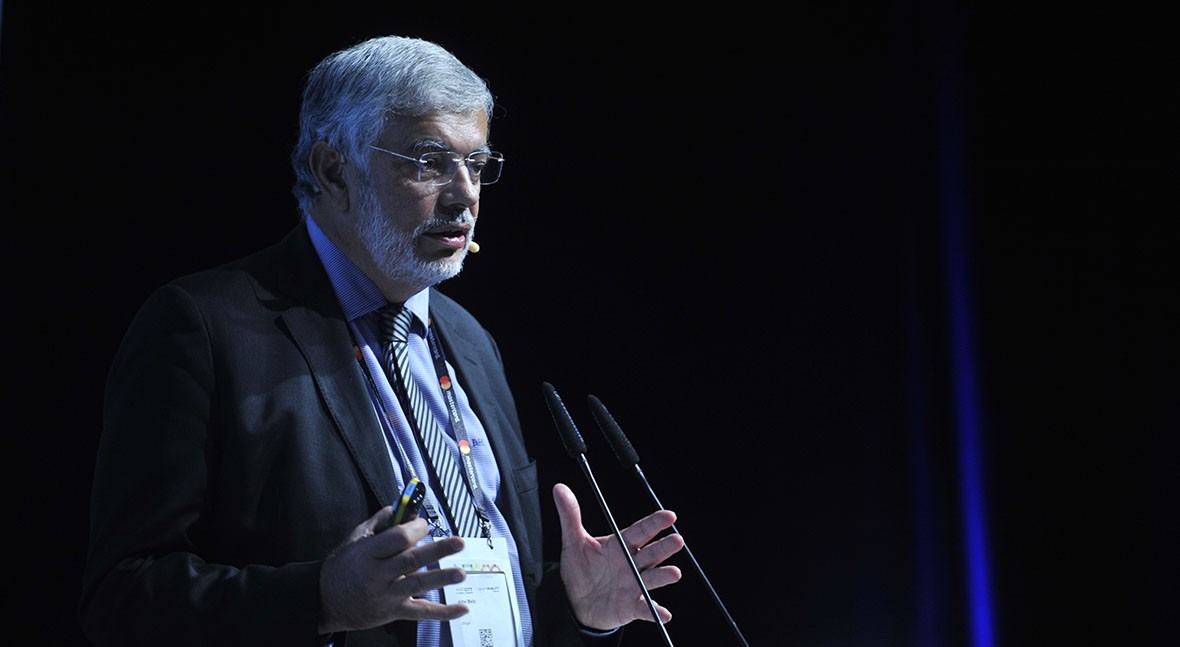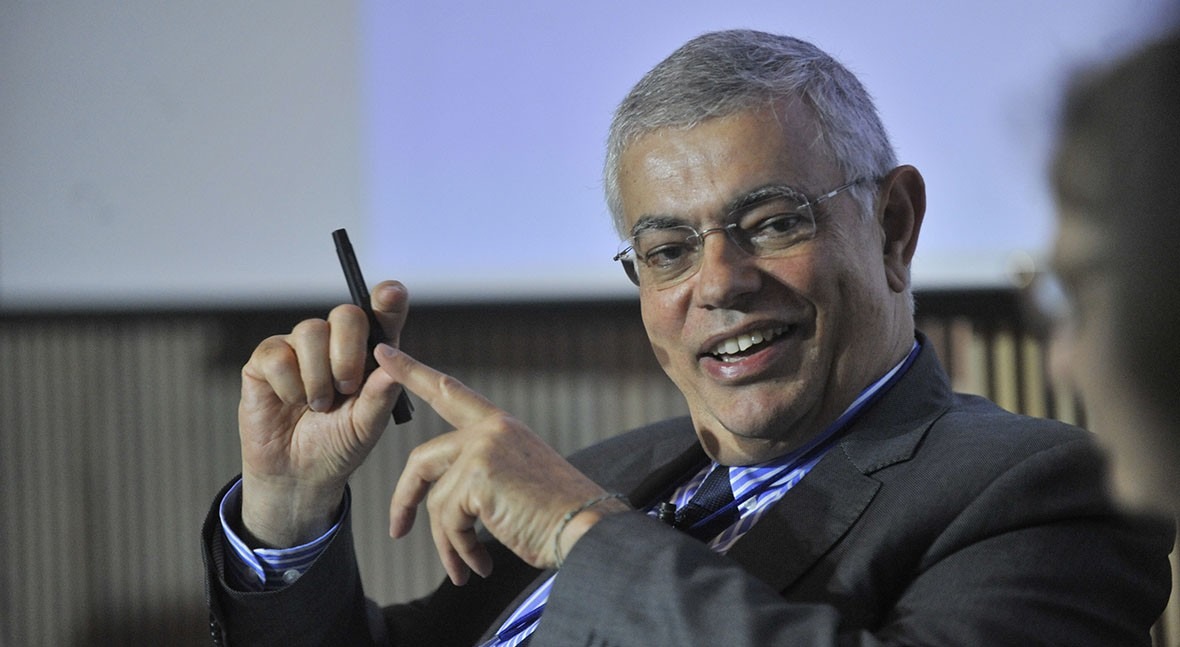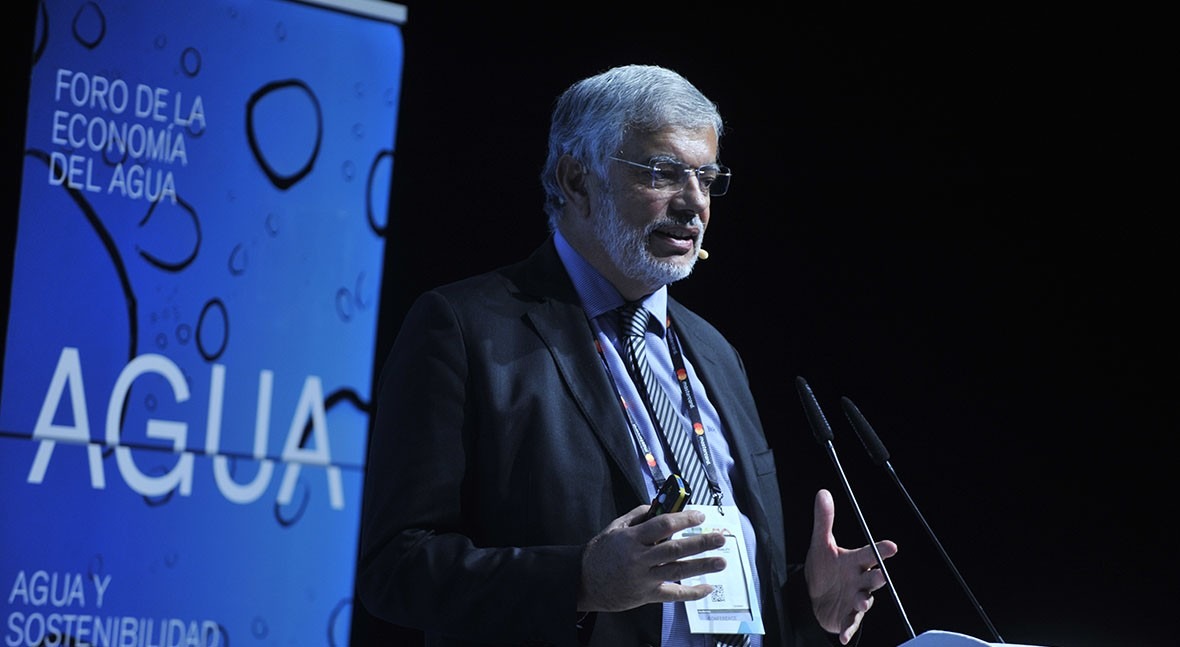"Portugal’s integrated water sector policy had positive impact on society, economy & environment"

The idea behind the Lisbon International Center for Water (LIS-Water) started in 2017, inspired by the success of water sector reform in Portugal, and was formalized in early 2020, as a non-profit international centre of excellence that works towards better water governance.
Within the framework of the sustainable development objectives, LIS-Water is dedicated to public policy, regulation and management of water services, with a focus on knowledge development and innovation, and its transfer to policymakers, water professionals, and society at large. Its president Jaime Baptista is an experienced professional in water supply and wastewater services specialised in public policy, as well as in the quality of services and performance assessment. In this interview, we hear from him about the activities of the recently created LIS-Water and his thoughts on the future of the global water sector.
Can you tell us briefly about your career path and your current role in LIS-Water?
I am a civil engineer specialized in sanitary engineering, president of the Lisbon International Centre for Water (LIS-Water) and principal research officer of the National Laboratory of Civil Engineering (LNEC). I am also chairperson of the Strategic Council of the Portuguese Water Partnership, and member of the National Council for Environment and Sustainable Development.
I was the president of the Portuguese Regulatory Authority for Water and Waste Services (ERSAR) for twelve years. I was also the Commissioner of Portugal to the 8th World Water Forum, and member of the Board of Directors and the Strategic Board of the International Water Association.
What is the rationale behind the creation of LIS-Water, and what are the organization’s priorities for the coming years?
LIS-Water is a new international non-profit centre aimed at better water governance in the world. The centre is dedicated to public policies, regulation and management of water supply, wastewater, and stormwater services, within the framework of the Sustainable Development Goals. It is formed by the main stakeholders of the water sector in Portugal.
LIS-Water is a new centre dedicated to public policies, regulation and management of water supply, wastewater, and stormwater services
It focuses on the development of knowledge and innovation, notably through brainstorming initiatives, and its transfer to policymakers, water professionals, industry, startups, and society in general.
LIS-Water's approach thus involves developing five areas of activity. The first one is to promote knowledge and innovation, with the collection and processing of the best scientific knowledge and practical application, and the production of new knowledge and innovation at the level of public policies, regulation and management of water services and associated water resources. The second is to carry out assessments, high-level brainstorms, and strategic advice for policy and decision-makers, ministers and mayors, for instance. The third is to provide training actions for decision-makers and water professionals. The fourth is to support business and start-up development. The last one is to promote communication, awareness, and community engagement on water issues.
Can you comment on the evolution of water services provision in Portugal in the past few years and the challenges ahead?
In the last three decades, Portugal implemented an integrated and consistent public policy for the water sector, with a positive impact on society, economy, public health, and environment. The creation of an effective regulatory framework and the modernisation of water utilities has also contributed to these results.

In this period the population with public water services has increased from 81% to 96%. Water quality has improved from 50% to 99%, according to European directives, making it safe to drink tap water nationwide. The population with public wastewater services, including treatment, increased from 28% to 84%, improving the environmental situation.
Consequently, the quality of water resources has improved, although it is still affected by other pollution sources. For instance, the water quality of coastal beaches improved from 55% to 99%, with a positive impact on tourism. The water quality of river beaches improved from 17% to 92%, developing inland territories. Blue flags on beaches tripled in this period, transmitting a safety message to the population and tourists. The impact on public health was very strong, practically eliminating water-related diseases.
What would you highlight from Portugal’s Strategic Plan for Water Supply and Wastewater and Stormwater Management (PENSAARP) 2030?
In addition to the problems that we still need to solve in the sector, new challenges arise that should be addressed. For this reason, Portugal is involved in the approval process of its new strategy for the next decade (Strategic Plan for Water Supply, Wastewater, and Rainwater Management - PENSAARP 2030). The vision is to provide excellent water services that ensure effectiveness, efficiency, sustainability, and added value, within the framework of a growing circularity.
In the last three decades, Portugal’s population with public wastewater services, including treatment, increased from 28% to 84%
The objectives of effectiveness include physical accessibility, continuity, reliability, wastewater quality, safety, resilience, equity, and economic accessibility.
Regarding efficiency objectives, they include governance and aggregation of utilities, water utilities modernization and digitization, management and allocation of financial resources, water efficiency, energy efficiency, and decarbonization.
The sustainability objectives include long term economic and financial sources, infrastructure, resource use and recovery, human capital, and information, knowledge, and innovation management.
The last objective is business and economic valorisation, circularity and environmental valorisation, societal valorisation, transparency, accountability and ethics, and contribution to sustainable development (SDGs).

To meet those objectives, 70 measures were defined and specified. Institutional, economic, financial, tax, legal, reputational, communication, innovation and market incentives were provided. The sector's mobilisation mechanism for this strategy was envisaged at a government level, involving other political bodies, public administration, management entities, market, associations, universities, and society in general. Mechanisms for monitoring objectives, measures, incentives, and investments have been provided. Political, governance, legislative, economic, financial, market and social risk management mechanisms have been defined.
A rather holistic approach was used, as you can see, but giving special priority to key structural problems: restructuring the retail sector, reducing the number of utilities, improving the economies of scale, the level of specialization of the utilities and transforming the culture of the sector to performance-oriented; guarantee the gradual recovery of costs, ensuring the economic, financial and infrastructure sustainability of the sector; and strengthen systems resilience, in particular, to tackle climate change.
Can you tell us about LIS-Water international activities?
Despite its youth, LIS-Water has already developed several projects in various regions of the world. We currently work in almost twenty countries in Europe, Latin America and the Caribbean, Africa, and the Middle East.
Changing the internal processes of the water utilities to transform them into digital processes involves an effective cultural change
I give the example of RegWAS LAC, a program aimed at strengthening the framework and practice of public policies and regulation of water and sanitation services in Latin America and the Caribbean. It results from a strategic collaboration between the Inter-American Development Bank, LIS-Water, and the Association of Water and Sanitation Regulators of the Americas, with the support of the Government of Portugal. It is a collaborative program that brings together regulators and authorities with regulatory and supervisory functions, international organizations and experts for cooperation and joint action. More than 30 water service regulators from 15 countries participate. It has started in May 2020 and lasts for two and a half years.
Another example is the implementation of a national advanced training program aimed at reinforcing the capacity of water utilities in Portugal. ProAguas provided general and comprehensive training, combining theory with practice, to support better management of utilities providing water supply, wastewater, and stormwater services. It also provided moments of brainstorming, discussion, and networking. Five editions of the program were conducted so far, training about three hundred professionals. Each edition included 48 modules and a total duration of 72 hours of training. It addressed public policy, regulation, service management, technical, economic, financial, legal, social, and environmental aspects, and new challenges.

What trends do you see in business models in water infrastructure and services across the world?
To ensure the continuity and quality of services in the long term, it is foreseeable that the sector will promote increased circularity and its inclusion in the business models. It is also foreseeable that the water utilities will ensure territorial valorisation through environmental services, increasing interactions and transactions with the urban territory they serve.
To ensure the continuity and quality of services, the water sector will promote circularity and its inclusion in business models
New opportunities such as the reuse of treated wastewater, desalinisation, sludge management and the production of energy will become increasingly important.
It is obvious the need to rethink and promote new business models based on those innovative approaches and their reintroduction into the value chain.
What are your thoughts on the digital transformation of the water industry?
The water utilities responsible for the provision of those services should be optimized in terms of organization, with good global, technical, financial, administrative, human resources and commercial management. They shall have adequate planning and management tools and good infrastructure knowledge.
Therefore, a transition to a digitalised sector is essential. It implies changing the internal processes of the water utilities to transform them into digital processes, within its entire value chain, in interaction with the surrounding ecosystem, which involves an effective cultural change. It involves a modest investment, especially when compared to the value of the assets, and allows, for example, the modelling and analysis of data, including the prediction of the effects of extreme events and the early definition of the measures. It is also possible to assess their resilience to pressures different from those for which they were designed, such as climate change, emergency discharge control, or undue flow rates. Anticipating the nature and magnitude of these phenomena seems to be the best way to assess their impact on systems and proactively create contingency and intervention plans.
What do you see as the main challenges ahead for a sustainable water future, in Portugal and beyond?
I see several main challenges ahead for sustainable water services: economic and financial sustainability, infrastructure sustainability, use and recovery of resources, human capital, information management, knowledge, and innovation.
The PENSAARP’s vision is to provide excellent water services that ensure effectiveness, efficiency, sustainability, and added value
The water utilities shall ensure their full economic and financial sustainability by recovering costs from tariffs, and eventually taxes and transfers, having a good economic and financial performance, autonomous and adequate accounting reporting.
They must ensure infrastructure sustainability through good knowledge and adequate asset management, including operation, maintenance, and rehabilitation, namely of the existing large networks.
The water utilities shall ensure sustainability in the use of the natural resources necessary for the provision of the service, such as water, energy, reagents, and materials, and circular economy will be the driver.
They shall ensure the adequacy in number, skills, and rejuvenation of human capital, information sharinginformation-sharing networks and knowledge transfer, as well as safety and health at work.
The sector must ensure its sustainability by consolidating the information system and strengthening the analysis and dissemination of knowledge and good practices, promoting research, and introducing innovation. It must be, like all network industries, innovative, efficient, and competitive by itself, contributing to creating value and jobs.




